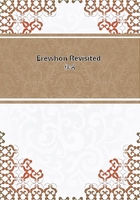
第45章
Something, therefore, he would say, but what? No one could talk more freely when the train of his thoughts, or the conversation of others, gave him his cue, but when told to say an unattached "something," he could not even think of "How do you do this morning? it is a very fine day;" and the more he cudgelled his brains for "something," the more they gave no response. He could not even converse further with the stranger beyond plain "yes" and "no"; so he went on with his supper, and in thinking of what he was eating and drinking for the moment forgot to ransack his brain. No sooner had he left off ransacking it, than it suggested something--not, indeed, a very brilliant something, but still something. On having grasped it, he laid down his knife and fork, and with the air of one distraught he said -"My name is Norval, on the Grampian Hills My father feeds his flock--a frugal swain.""I heard you," exclaimed the stranger, "and I can interpret every word of what you have said, but it would not become me to do so, for you have conveyed to me a message more comforting than I can bring myself to repeat even to him who has conveyed it."Having said this he bowed his head, and remained for some time wrapped in meditation. My father kept a respectful silence, but after a little time he ventured to say in a low tone, how glad he was to have been the medium through whom a comforting assurance had been conveyed. Presently, on finding himself encouraged to renew the conversation, he threw out a deferential feeler as to the causes that might have induced Mr. Balmy to come to Fairmead.
"Perhaps," he said, "you, like myself, have come to these parts in order to see the dedication of the new temple; I could not get a lodging in Sunch'ston, so I walked down here this morning."This, it seemed, had been Mr. Balmy's own case, except that he had not yet been to Sunch'ston. Having heard that it was full to overflowing, he had determined to pass the night at Fairmead, and walk over in the morning--starting soon after seven, so as to arrive in good time for the dedication ceremony. When my father heard this, he proposed that they should walk together, to which Mr. Balmy gladly consented; it was therefore arranged that they should go to bed early, breakfast soon after six, and then walk to Sunch'ston. My father then went to his own room, where he again smoked a surreptitious pipe up the chimney.
Next morning the two men breakfasted together, and set out as the clock was striking seven. The day was lovely beyond the power of words, and still fresh--for Fairmead was some 2500 feet above the sea, and the sun did not get above the mountains that overhung it on the east side, till after eight o'clock. Many persons were also starting for Sunch'ston, and there was a procession got up by the Musical Bank Managers of the town, who walked in it, robed in rich dresses of scarlet and white embroidered with much gold thread.
There was a banner displaying an open chariot in which the Sunchild and his bride were seated, beaming with smiles, and in attitudes suggesting that they were bowing to people who were below them.
The chariot was, of course, drawn by the four black and white horses of which the reader has already heard, and the balloon had been ignored. Readers of my father's book will perhaps remember that my mother was not seen at all--she was smuggled into the car of the balloon along with sundry rugs, under which she lay concealed till the balloon had left the earth. All this went for nothing. It has been said that though God cannot alter the past, historians can; it is perhaps because they can be useful to Him in this respect that He tolerates their existence. Painters, my father now realised, can do all that historians can, with even greater effect.
Women headed the procession--the younger ones dressed in white, with veils and chaplets of roses, blue cornflower, and pheasant's eye Narcissus, while the older women were more soberly attired.
The Bank Managers and the banner headed the men, who were mostly peasants, but among them were a few who seemed to be of higher rank, and these, for the most part, though by no means all of them, wore their clothes reversed--as I have forgotten to say was done also by Mr. Balmy. Both men and women joined in singing a litany the words of which my father could not catch; the tune was one he had been used to play on his apology for a flute when he was in prison, being, in fact, none other than "Home, Sweet Home." There was no harmony; they never got beyond the first four bars, but these they must have repeated, my father thought, at least a hundred times between Fairmead and Sunch'ston. "Well," said he to himself, "however little else I may have taught them, I at any rate gave them the diatonic scale."He now set himself to exploit his fellow-traveller, for they soon got past the procession.
"The greatest miracle," said he, "in connection with this whole matter, has been--so at least it seems to me--not the ascent of the Sunchild with his bride, but the readiness with which the people generally acknowledged its miraculous character. I was one of those that witnessed the ascent, but I saw no signs that the crowd appreciated its significance. They were astounded, but they did not fall down and worship.""Ah," said the other, "but you forget the long drought and the rain that the Sunchild immediately prevailed on the air-god to send us.